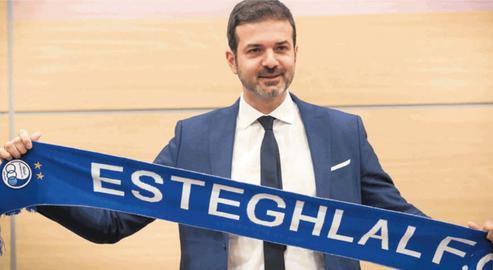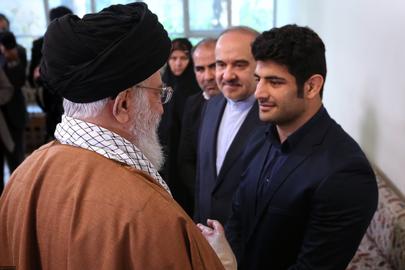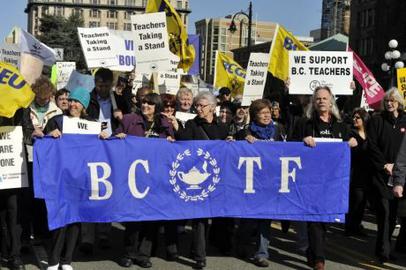Foreign sports coaches working in Iran are increasingly leaving the country due to poor treatment — including not being paid, financial obstacles and officials failing to appreciate and support the jobs they do. This lack of support has come from the very top, from the Supreme Leader Ayatollah Khamenei himself.
The story dates back to August 7, 2019 when the Supreme Leader met with young medalists taking part in international science competitions and members of the Iranian youth volleyball team. He gave them his vision of how Iranian sports should be managed. “I really believe that it befits the status of our country to have Iranian head coaches in sports clubs and Iranian officials in federations and the like,” Khamenei told them. While he claimed that he was not “interfering,” his comment that there was “no necessity” for foreign coaches in Iranian sports sent a different message.
A few hours later, the Supreme Leader’s official news site published the statements in bold letters, reiterating that the presence of foreign coaches in Iranian sports is not “proper.”
The Leader and the Politics of Sports
Unlike Ayatollah Ruhollah Khomeini, the first leader of the Islamic Republic, Ayatollah Khamenei has shown a lot of interest in sports, possibly because of two of his own particular interests, volleyball and mountaineering. An early example of this interest is a TV interview he gave in 1983 when he was the president of the Islamic Republic. During the interview, Khamenei talked about the historic match between the national football teams of Iran and Israel during the Pahlavi monarchy. “At that time I was a young seminary student who had just arrived in Tehran,” he said. “The public attitude in Tehran was against the Israeli team and after the match they were all showing their happiness over this victory. The cab driver told me, ‘did you see how we scored goals against them?’ They all showed their unhappiness over the Shah’s cooperation with Israel.”
Years later, following the 1998 FIFA World Cup in France, the Supreme Leader kissed the forehead of Hamid Reza Estili, a footballer for the national team who headed a ball and scored a goal against the US national team. Thanking him, the Leader said, “I did not want to stay up and watch the game. It was late at night and time for me to go to sleep, but when I saw the opening minutes of the game I decided to watch it until the end.”
After this Hamid Reza Estili always received special attention and when he retired as a footballer in 2004, he was first appointed as the assistant coach for Persepolis Football Club and then as its head coach. He is now the manager of Iran’s national under-23 football team.
Every time Hossein Rezazadeh, a former member of Iran’s national weightlifting team, was victorious in international and Olympic competitions, the Supreme Leader would send him personal congratulatory messages. And when Rezazadeh retired from coaching the team he was elected to Tehran’s City Council and was appointed as the prime counselor for the Iranian National Weightlifting Federation.
Ayatollah Khamenei, of course, is the prime opponent of Iranian athletes competing with Israelis. When Rasoul Khadem, the former president of Iran’s Wrestling Federation, wrote a letter to the Supreme Leader, asking him to allow Iranian athletes to compete against Israelis, Khamenei issued his final verdict. “The Islamic Republic of Iran will never participate in sports competitions with the representatives of the usurping regime [Israel],” he told Iranian athletes who had won medals at the 18th Asian Games in Jakarta on September 24, 2018. He then approvingly mentioned Alireza Karimi, the Iranian freestyle wrestler who in 2017 deliberately threw a match so that he would not have to face an Israeli opponent. Khamenei called his action an example of “true heroism.”
The "Unnecessary" Foreign Coaches Leave
At the time that Khamenei came up with his general guideline for Iranian sports in August 2019, there were a large number of foreign coaches working in the country, including Marc Robert Wilmots, the manager of Iran’s national football team, Andrea Stramaccioni, manager of Esteghlal Football Club, Gabriel Calderon, manager of Persepolis Football Club, Mustafa Denizli, manager of Tractor Sazi Football Club, Dragan Skočić, manager of Sanat Naft Football Club, and Igor Kolaković, the head coach of Iran’s national volleyball team.
Now, less than five months after the Supreme Leader’s comment about foreign coaches, Marc Wilmots has returned to Belgium, Andrea Stramaccioni left for Italy and terminated his contract in the middle of the first football season after his team, Esteghlal, had reached the top of the league, Mustafa Denizli left Tractor Sazi and Gabriel Calderon went to Argentina and has since announced that he will not return to Iran, despite the fact that Persepolis was top of the championship as of the first half of Iran’s pro football season.
It appears that “financial problems” are key to all these departures. The inability of Iranian sports clubs and football federation to legally deposit the salaries of foreign coaches into their accounts outside of Iran is an ongoing problem for Iranian sports managers. US sanctions on banking and the Islamic Republic’s refusal to join the FATF (the Financial Action Task Force against money laundering) are the main reasons for the problem.
The example of Andrea Stramaccioni, the Italian head coach of Esteghlal who recently resigned, illustrates this predicament well. He was suspected of money laundering and was questioned by the Italian police because a money changer had deposited his salary into his account — a salary that had originally come from Iran.
Not Just About Money
It would be wrong, however, to assume that financial problems are the only reason that foreign coaches are leaving Iran. Earlier, coaches including Branko Ivanković, Nelo Vingada and Carlos Queiroz remained in Iran despite the financial problems the clubs and the football federation faced. Following complaints to the international football federation (FIFA), FIFA paid their wages plus an extra amount as penalty for the delay.
In 2009, for the first time, Iran’s Football Federation added a clause to its contract with a foreign coach that allowed the manager of the national football team to unilaterally terminate his contract in cases of “political unrest, start of a war or terrorist threats.”
After Wilmots left Iran, the sports newspaper Goal reported that one of the conditions in the Belgian coach’s contract with the football federation was that he, his wife and his family would not be forced to live in Iran. Andrea Stramaccioni’s wife Dalila was against him returning to Iran. After nationwide protests broke out in November 2019, it was reported that she wanted to return to Italy because she was afraid of two things: an “influenza epidemic in Iran” and “a repeat of the internet shutdown.” Dalila wrote about her week without internet access in Iran on her Instagram page.
It also appears that one of the reasons for Gabriel Calderon’s resignation from Persepolis was the November protests and the threat of war with the US.
In addition to all of this, Iranian sports clubs and federations have put pressure on foreign coaches when it comes to paying their salaries and providing housing accommodation. This change of policy appears to be linked to the guidelines dictated by the Supreme Leader, as evidenced by the appointment of Farhad Majidi as the manager of Esteghlal, consultations with Ali Daei about putting him in charge of Persepolis and regarding Yahya Golmohammadi and Amir Ghalenoei being added to the list of possible managers for the Iranian national football team.
Apparently, the 80-year-old Supreme Leader of the Islamic Republic is not only thinking about his legacy in Iranian politics, but also in culture and sports. And in the same way that Iranian politics and culture have suffered from his mismanagement, the wasteland of Iranian sports will also be part of that legacy.
Related Coverage:
An Italian Football Manager’s Iranian Saga, December 13, 2019
Iran's Football Manager May Quit After Six Months — Without Pay, 6 November 2019
The Man Behind Corruption and Embezzlement in Iranian Sports, October 16, 2019
Football Legend Ali Daei Quits and Reveals Secrets, May 5, 2019
Corruption, Lies, and Iran's Football Federation, February 21, 2019
IranWire Exclusive: Iranian Football’s Million-Dollar Swindle, February 6, 2019
The Mystery of FIFA’s Missing Cash for Iran, July 17, 2018
visit the accountability section
In this section of Iran Wire, you can contact the officials and launch your campaign for various problems


























comments